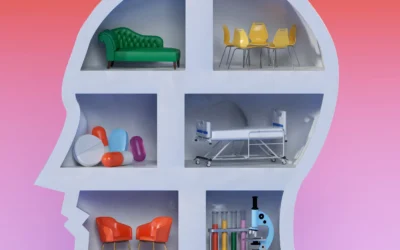Podcast: Play in new window | Download (Duration: 50:48 — 35.1MB)
Subscribe: Apple Podcasts | Spotify | Amazon Music
Exploring Intersecting Genders – What We Can All Learn
Walk through the discovery experience of coming to understand yourself as transgender and see how coming to truly discover and embrace yourself relates to everyone, not just those who identify as non-binary.
Therapist Uncensored co-host Sue Marriott LCSW, CGP joins Umbrella Collective founder, clinical social worker, psychotherapist and parent Li Brookens in a lively discussion on recognizing the complexities (and social implications) of defining oneself as non-binary. They discuss what therapists need to know in working with these populations, and share great resources to follow up. Their sweet conversation captures the human development across ages to the struggle and pride of landing in a place with oneself that feels like home.
They also talk about how to differentiate terms like gender and sex and the importance of a non-binary conception when discussing identity. We think you’ll enjoy it and learn something no matter your gender identity!
WHO IS LI?
Li Brookens is a licensed clinical social worker (LCSW), certified group psychotherapist (CGP), and clinical hypnotherapist providing psychotherapy for individuals, couples, and groups in Boulder, Colorado. Li is the founder of their group practice, the Umbrella Collective that specializes in psychotherapy for your intersecting identities. Li has advanced skills in working with LGBTQ+ identities, young adults, and groups. Li works collaboratively with clients weaving together modern psychodynamic theory and postmodern therapy using a social justice lens that centers on marginalized identities. “I believe that each client I work with has an inner knowing that is seeking to be uncovered. I see my job as helping my clients excavate that knowledge so they can empower themselves to make meaningful changes in their lives.”
0:00-15:00
Introduction
Li’s own experience growing up, maturing and discovering their gender identity as non-binary
15:00-30:00
Removing binary thinking from identity and opening up a world for identity
Counter transference
Defining “cisgender”, transgender as anyone who transgresses gender norms
Gender assignment vs. sex assignment, sexual orientation, sex role
Non-gender specific pronouns such as “they”
30:00-50:00
Preferred terms vs defining terms; it’s not a preference, it just is.
Addressing being trans in a general therapy sessions
Gender dysphoria
Having a problem with anxiety vs. having anxiety about having a problem
Resources, how best to address transgender people as therapists, familiarizing yourself with the gender spectrum
Wrap up and outro
References/Resources:
The Colonized Mind: Gender Trauma and Mentalization by Sarah Silverman – excellent clinical article from therapists perspective, one of Li’s favorite’s!
WPath.org (World Psychological Organization for Transgender Health) THIS IS A MUST SEE -Ethical Standards, be familiar with these if you are a therapist. Great resource!
Gender Spectrum for families Another awesome resource, this has tons of great material for anyone interested in learning more! Share freely.
Umbrella Collective – how to get in touch with Li Brookens
KUT Views & Brews: “Being Trans in Texas Today”
Want to support this work and stay in touch?
Join our email list, subscribe to Tunes here or join our Facebook page here to get updated popular articles on these subjects of interest. Biggest help of all is to leave us a review, they are so useful as we go forward fine-tuning what is most helpful for our audience and it literally inspires us to keep going in this hobby of love!
New to all this? Start with Episode 59-61 for the Spectrum of Attachment and how to use the research in day to day settings, and follow that with a apertif of Episode 66 where a single non-therapist relates how she uses this material NOT in a relationship in a hilarious feedback session where she tells us how we are doing.
Be sure you’ve checked out our free video, Modern Adult Attachment 101 to learn more and to easily share the basics of this science and what to do with it with others!













